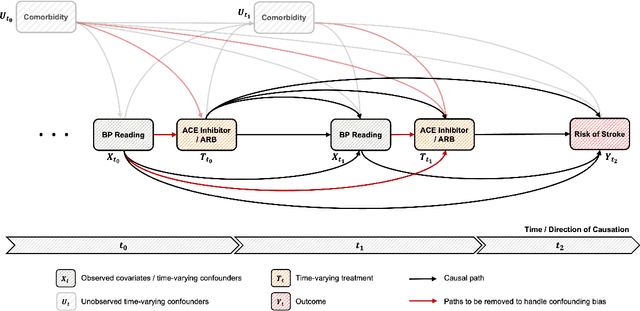A Perspective on Individualized Treatment Effects Estimation from Time-series Health Data
Paper and Code
Feb 07, 2024

The burden of diseases is rising worldwide, with unequal treatment efficacy for patient populations that are underrepresented in clinical trials. Healthcare, however, is driven by the average population effect of medical treatments and, therefore, operates in a "one-size-fits-all" approach, not necessarily what best fits each patient. These facts suggest a pressing need for methodologies to study individualized treatment effects (ITE) to drive personalized treatment. Despite the increased interest in machine-learning-driven ITE estimation models, the vast majority focus on tabular data with limited review and understanding of methodologies proposed for time-series electronic health records (EHRs). To this end, this work provides an overview of ITE works for time-series data and insights into future research. The work summarizes the latest work in the literature and reviews it in light of theoretical assumptions, types of treatment settings, and computational frameworks. Furthermore, this work discusses challenges and future research directions for ITEs in a time-series setting. We hope this work opens new directions and serves as a resource for understanding one of the exciting yet under-studied research areas.
 Add to Chrome
Add to Chrome Add to Firefox
Add to Firefox Add to Edge
Add to Edge